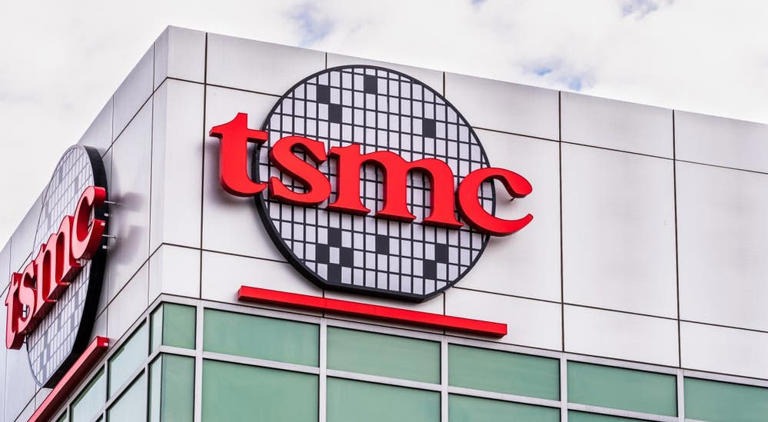Business
Norfolk Southern Board Probes CEO’s Alleged Relationship with Chief Legal Officer

Norfolk Southern, one of the largest railroad companies in the United States, is under internal scrutiny as its board of directors investigates an alleged inappropriate relationship between CEO Alan Shaw and the company’s Chief Legal Officer, Nabanita Nag. This probe comes during a pivotal time for the company, following a series of challenges, including a major derailment incident in East Palestine, Ohio, and a proxy fight led by activist investor Ancora. The investigation could lead to significant leadership changes and potentially affect the future direction of the company.
Background of the Investigation
The allegations revolve around a reported inappropriate relationship between Shaw and Nag, who has been with Norfolk Southern since 2020. Nag currently holds the roles of General Counsel, Corporate Secretary, and Senior Vice President, overseeing critical areas such as government relations, compliance, and corporate communications. As Corporate Secretary, she is also a key conduit of information between the board and the company’s executive team.
The board only recently became aware of the alleged relationship, leading to the decision to launch a formal investigation. Given the sensitive nature of the allegations, the board is expected to make a decision on Shaw’s future with the company soon. Multiple sources indicate that Shaw may step down from his role as CEO. If he does, Norfolk Southern will face a leadership vacuum at a time when stability is critical for the company.
Potential Successors to Alan Shaw
As the investigation progresses, the board is already discussing possible successors to Shaw. Two internal candidates have emerged as frontrunners for the CEO position: Chief Operating Officer (COO) John Orr and Chief Financial Officer (CFO) Mark George. Each candidate brings different strengths and experiences to the table, making the decision a difficult one for the board.
John Orr, who joined Norfolk Southern in March, is well-versed in the railroad industry, with a career spanning several decades. Despite his strong track record, his candidacy is complicated by past allegations of misconduct, which were raised again during Ancora’s proxy fight earlier this year. Orr has denied any wrongdoing, and the company has defended him, calling the allegations an attempt to malign his reputation with old, resolved issues. Despite this controversy, Orr’s industry experience makes him a top contender.
Mark George, on the other hand, is less known in the railroading community but has earned the respect of shareholders and colleagues for his financial acumen. His leadership during Norfolk Southern’s recent proxy battle showcased his ability to navigate challenging situations, gaining him favor among key stakeholders. George began his career at Otis Elevator Company, where he rose through various leadership positions, eventually overseeing operations in both Hong Kong and the United States. While George lacks the industry-specific background of Orr, his experience in finance and operations management has positioned him as a strong candidate for the CEO role.
Impact on Employees and Labor Concerns
The uncertainty surrounding Norfolk Southern’s leadership has left many employees and labor leaders in the dark about the company’s future direction. Norfolk Southern employs around 20,000 people, many of whom are part of unions. Scott Bunten, general chairman of the Brotherhood of Locomotive Engineers & Trainmen (BLET), which represents 4,600 employees at the company, expressed concern over the lack of communication from senior management. According to Bunten, many employees have been hearing rumors about the investigation, but no official memo or statement has been issued to clarify the situation.
Bunten highlighted that many workers are worried about how the potential resignation of Shaw and the leadership changes could affect the company’s operations and future. Labor leaders have emphasized the importance of stability and transparency as Norfolk Southern navigates this period of uncertainty.
Conclusion
Norfolk Southern’s board is grappling with a significant challenge as it investigates the alleged relationship between CEO Alan Shaw and Chief Legal Officer Nabanita Nag. The probe has left employees, labor leaders, and executives uncertain about the company’s future leadership. With the board considering potential successors like COO John Orr and CFO Mark George, the outcome of the investigation may bring about sweeping changes at one of the country’s largest railroads. As the situation unfolds, the company’s ability to maintain stability and trust will be critical to its ongoing success.
Financial
Extra SSI Check Coming in November: Here’s What to Expect

Some Social Security recipients will get an extra check in November due to a unique scheduling event. About seven million beneficiaries of Supplemental Security Income (SSI) will see this additional payment because of a timing quirk in the 2024 calendar. This isn’t a new occurrence; the same situation happened in August when recipients received both August and September’s payments.
What Is Causing the Extra Payment?
SSI beneficiaries usually receive one payment per month, distributed on the first day of each month. But when the first day of the month falls on a weekend or holiday, the payment is sent out on the previous business day. This quirk in the calendar leads to an extra check being issued in the month before. For November, SSI recipients will get their regular check, along with their December payment, because December 1 lands on a Sunday. Therefore, the December check will arrive on November 29, 2024.
This pattern of payments is expected to occur again in the upcoming months. January, February, and March of 2025 all have their first days landing on weekends or holidays, meaning payments will be made earlier than usual. January’s check will be issued on December 31, 2024, and while there will be a payment on January 31, 2025, that check will cover February’s payment. Similarly, February’s check will arrive on February 28, covering March. Therefore, March will not have a scheduled payment, but regular payments will resume in April.
What This Means for SSI Beneficiaries
For those who rely on SSI benefits, getting two checks in one month and none the next can complicate monthly budgeting. It is crucial to plan ahead and manage the funds over the months when no payments are scheduled. Beneficiaries should remember that, despite receiving two payments in November and January, they are not receiving extra benefits. The payments are simply being distributed earlier due to the calendar dates falling on non-business days.
Despite these irregularities in the payment schedule, all SSI recipients will still receive the same amount of money by the end of the year as they are supposed to. No payments will be missed, and there will be no deductions or extra payments beyond what beneficiaries are entitled to.
The Impact on Regular Social Security Recipients
If you receive regular Social Security benefits rather than SSI, you will not be affected by the November or December payment adjustments. Regular Social Security checks continue to be distributed according to their normal schedule, and there will be no early payments or changes.
However, one thing regular Social Security beneficiaries will notice is the cost-of-living adjustment (COLA) for 2024. The Social Security Administration recently announced a 2.5% increase in benefits due to COLA, which is a drop from 2023’s 3.2% increase and significantly lower than the 8.7% COLA in 2022. This decrease in COLA reflects the easing of inflation over the past year. The adjustment is based on the Labor Department’s Consumer Price Index for Urban Wage Earners and Clerical Workers (CPI-W). While the COLA may result in a modest increase in benefits, it’s smaller than the past two years, which saw larger adjustments due to higher inflation rates.
Managing Finances with Irregular Payments
For those affected by the SSI payment timing, careful planning is key. It’s important to spread out the funds from the extra payment over the months when no checks are due to arrive. Creating a monthly budget to account for these irregular payments can help beneficiaries avoid financial strain when no payment is sent.
Another option for SSI recipients is to consult with a financial advisor or a social worker who can offer guidance on managing irregular income. SSI payments are a critical part of many people’s financial resources, and handling the timing changes properly can prevent unexpected hardship.
If you’re unsure about your SSI payment schedule or need assistance, it’s advisable to check with the Social Security Administration or refer to their payment calendar for the upcoming months. These resources can help ensure that beneficiaries are well-informed and prepared for the irregular payment schedule.
Planning for Future Payments
Beneficiaries should also be aware of the upcoming payment changes in 2025. The first few months of the new year will have early payments as weekends and holidays again affect the distribution dates. Knowing this in advance can allow SSI recipients to prepare their budgets accordingly.
For those receiving SSI benefits, maintaining awareness of these calendar quirks and payment changes is important to prevent any confusion or financial disruption. The Social Security Administration continues to release updated information to help beneficiaries stay informed about when to expect their checks. Staying updated can ensure that you are always prepared for any changes in the payment schedule.
Conclusion
November’s extra check is part of a scheduling adjustment due to the 2024 calendar, with SSI beneficiaries receiving both November and December payments in the same month. The same will happen in 2025, with early payments expected in January and February. Beneficiaries should plan for these irregular payments and budget their finances accordingly. While regular Social Security recipients are unaffected by these changes, both SSI and Social Security recipients should be aware of the lower COLA adjustment for 2024. Overall, staying informed and prepared for these scheduling quirks will help SSI recipients manage their finances without disruption.
Stock
TSMC Reports 39% Revenue Surge in Q3 Amid AI Chip Demand

Taiwan Semiconductor Manufacturing Company (TSMC) has announced impressive third-quarter results, reflecting a surge in demand for advanced chip technologies, particularly those used in artificial intelligence (AI) applications. The semiconductor giant, which supplies key components to tech titans like Nvidia and Apple, posted revenue and earnings figures that exceeded market expectations.
Q3 Financial Highlights: For the third quarter of 2024, TSMC reported consolidated revenue of NT$759.69 billion (approximately $23.50 billion), marking a 39% increase compared to the same period last year. Sequentially, this represented a 12.8% growth from the previous quarter. In dollar terms, the year-over-year revenue growth was 36%, with a 12.9% increase compared to the second quarter of 2024.
The company’s revenue exceeded its own guidance range of $22.4 billion to $23.2 billion, as well as market forecasts which anticipated NT$748 billion in revenue, according to data provided by Bloomberg.
TSMC’s net income rose by 54.2% year-over-year to NT$325.26 billion, translating to earnings of NT$12.54 per share. This also surpassed analysts’ expectations, with Reuters data showing an estimated net profit of NT$300.2 billion.
Technology Breakdown: TSMC’s advanced chip technologies continue to be in high demand. The company reported that 3-nanometer (nm) technology accounted for 20% of its total revenue in Q3, while 5-nm and 7-nm technologies contributed 32% and 17% of total revenue, respectively. Together, these advanced technologies represented 69% of TSMC’s total wafer revenue, up from 67% in the second quarter.
Profit Margins: The company’s margins saw significant improvement in the third quarter compared to both the previous quarter and the same period last year. TSMC reported a gross margin of 57.8%, up from 53.2% in Q2 2024 and 54.3% in Q3 2023. Operating margin stood at 47.5%, an increase from 42.5% in the previous quarter and 41.7% in Q3 2023. Net profit margin also saw a notable increase, reaching 42.8%, compared to 36.8% in Q2 2024 and 38.6% in Q3 2023.
Stock Performance: The strong financial performance and increasing demand for AI chips have significantly boosted TSMC’s stock value. The company’s American Depositary Receipts (ADRs) listed on the New York Stock Exchange have surged by over 82% year-to-date. On Wednesday, the stock closed at $187.48, reflecting a 0.19% increase.
TSMC’s focus on advanced chip technologies, particularly in AI, has positioned the company for sustained growth as global demand for AI processors continues to rise. With solid financials and a leadership position in the semiconductor market, TSMC is expected to maintain its upward trajectory in the coming quarters.
Entrepreneur
McDonald’s Halts AI Drive-Thru Tech: What’s Next for Fast Food?

McDonald’s is pulling the plug on artificial intelligence ordering technology it was testing at more than 100 restaurant drive-thru systems in the US, a possible hiccup in the rapid rollout of AI in the fast food industry.
The company had worked with IBM to develop and test AI-driven, voice-automated ordering at some of its restaurants. The fast food giant says it’s still working on AI-related solutions at a time when its rivals are making similar investments.
It plans to shut off the technology in restaurants participating in the test “no later than July 26, 2024,” according to reporting from trade publication Restaurant Business.
“IBM remains a trusted partner and we will still utilise many of their products across our global System,” McDonald’s said in an email sent to franchisees. But the company suggested it will look at AI partners other than IBM.
McDonald’s and IBM launched their partnership in 2021, announcing the development of Automated Order Taking (AOT) technology to create a more convenient and simplified ordering experience for its customers and restaurant teams as a part of its “Accelerating the Arches” growth plan.
IBM said the AOT technology that emerged from the partnership has “some of the most comprehensive capabilities in the industry, fast and accurate” in demanding conditions.
“While McDonald’s is evaluating and refining its plans for AOT, we look forward to continuing to work with them on a variety of other projects,” IBM said in a statement.
McDonald’s says this is not the end of its AI efforts. It plans to “evaluate long-term, scalable solutions” forvoice-ordering by the end of 2024.

McDonald’s is not the only fast-food chain experimenting with AI. Other companies like White Castle tested out an automated drive-thru ordering system in 2021, and Wendy’s expanded its partnership with Google Cloud to roll out its own AI ordering tool in May last year.
Despite fast-food companies’ enthusiasm to integrate AI-powered solutions into their daily operations, the technology has still hit snags. Some customers have complained about AI getting their orders wrong — a result of the technology’s inability to recognize some accents and distinguish the customer’s voice from background noise.
-

 Health Care2 years ago
Health Care2 years ago7 Surprising Ways to Lower Cholesterol Naturally – No Medication Needed
-

 Entertainment1 year ago
Entertainment1 year agoAustin Abrams Discusses ‘Wolfs,’ Future Projects, and ‘Euphoria’ Season 3
-

 Health Care2 years ago
Health Care2 years agoPink Eye(Conjunctivitis): What Is Commonly MISDIAGNOSED As PINK EYE?
-

 Celebrity2 years ago
Celebrity2 years agoRelationship Lessons from Jennifer Lopez and Ben Affleck
-

 Entertainment2 years ago
Entertainment2 years agoZendaya Opens Up About Racy Scenes and Family Reactions in New Film
-

 NEWS2 years ago
NEWS2 years agoIs Trump Going To Jail? Your Questions About Trump’s Trial Answered
-

 Entertainment2 years ago
Entertainment2 years agoZendaya and Tom Holland kiss at The London Challengers premiere.
-

 Entertainment2 years ago
Entertainment2 years agoChris Martin and Dakota Johnson reportedly got engaged years ago




